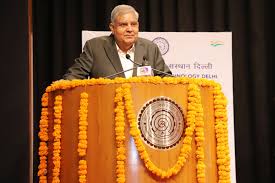
Cardiac Society employs telemedicine, artificial intelligence to treat heart disease
- Biotechnology
- No Comment
- 294

As part of efforts to boost cardiovascular (heart) care in emergency and disaster situation, the Nigerian Cardiac Society (NCS) has employed telemedicine and Artificial Intelligence (AI).
This was disclosed during NCS’ three-day 50th Annual General Meeting and Scientific Conference held at Oriental Hotel, Lagos, with theme, “Delivering Cardiovascular Care in Emergency/Disaster Situation.”
According to the World Health Organisation (WHO), cardiovascular diseases (CVDs) are the leading cause of death globally, taking an estimated 17.9 million lives each year. CVDs are a group of disorders of the heart and blood vessels and include coronary heart disease, cerebrovascular disease, rheumatic heart disease and other conditions. More than four out of five CVD deaths are due to heart attacks and strokes, and one third of these deaths occur prematurely in people under 70 years of age.
President, NCS, Dr. Okechukwu Ogah, said telemedicine and artificial intelligence in cardiovascular care in the country would enable patients to access health facilities in their convenience without needing to come to the hospital or travel around.
Ogah said the government had already accepted telemedicine and this is evident in the use of it by public health care facilities.
He said telemedicine would be used to communicate and share conferences, share ideas and discuss patients. “From statistics, the acceptance of Telemedicine in the country is quite high and people are happy with it. Telemedicine will help solve problems even though there is a limit to it as some people would not want to discuss their health issues online but would rather visit hospitals to have direct consultations,” Ogah said.
According to the President of NCS, “the benefits of the introduction of telemedicine in Nigeria is numerous as it will help bring health care closer to the people, everybody can now access health services in the comfort of their homes. This is a good sign of progress in the health sector and we hope for many more developments to come.”
Ogah said NCS’ vision is to disseminate current and evidence- based information on cardiovascular diseases to the public, as well as promote the adoption of healthy lifestyles by the public through adoption of cardiovascular disease preventive measures that has been borne out of research. “We have been keeping up with these visions with the support of the World Health Federation, which is the umbrella body that houses all the National Societies,” he said.
Ogah said some of the challenges the Society faces include: locally disruptive health care system, massive migration of health workers, economic downturn, devaluation of currency and high cost of drugs and consumables. He said it is now becoming very hard for patients to procure their medications when they encounter catastrophic spending occasioned by disease conditions that require super-specialty care.
Ogah said research shows that the ratio of cardiologists to Nigerians is one to 40,000, which is a very poor. He said most of the cardiologists, after being trained here in the country, travel abroad, some in search of better opportunities while some travel for personal reasons.
In regards to these challenges, the society is using this opportunity to “call on our governments at all levels to look into the plights of our patients as well as those who provide the care. The government at all levels should also embrace Universal Health Coverage (UHC) at all level and provide the enabling legal framework as well as resources to ensure that this is a reality in our country.”
Meanwhile, according to WHO, the most important behavioural risk factors of heart disease and stroke are unhealthy diet, physical inactivity, tobacco use and harmful use of alcohol. The effects of behavioural risk factors may show up in individuals as raised blood pressure, raised blood glucose, raised blood lipids, and overweight and obesity. These “intermediate risks factors” can be measured in primary care facilities and indicate an increased risk of heart attack, stroke, heart failure and other complications.
Cessation of tobacco use, reduction of salt in the diet, eating more fruit and vegetables, regular physical activity and avoiding harmful use of alcohol have been shown to reduce the risk of cardiovascular disease. Health policies that create conducive environments for making healthy choices affordable and available are essential for motivating people to adopt and sustain healthy behaviours.
Identifying those at highest risk of CVDs and ensuring they receive appropriate treatment can prevent premature deaths. Access to non-communicable disease medicines and basic health technologies in all primary health care facilities is essential to ensure that those in need receive treatment and counselling.
Abigal Ikhaghu
The Guardian
Read more: https://guardian.ng/news/cardiac-society-employs-telemedicine-artificial-intelligence-to-treat-heart-disease/





